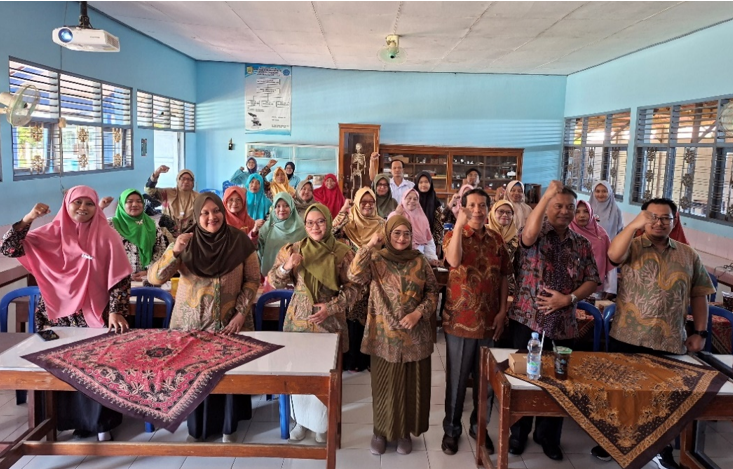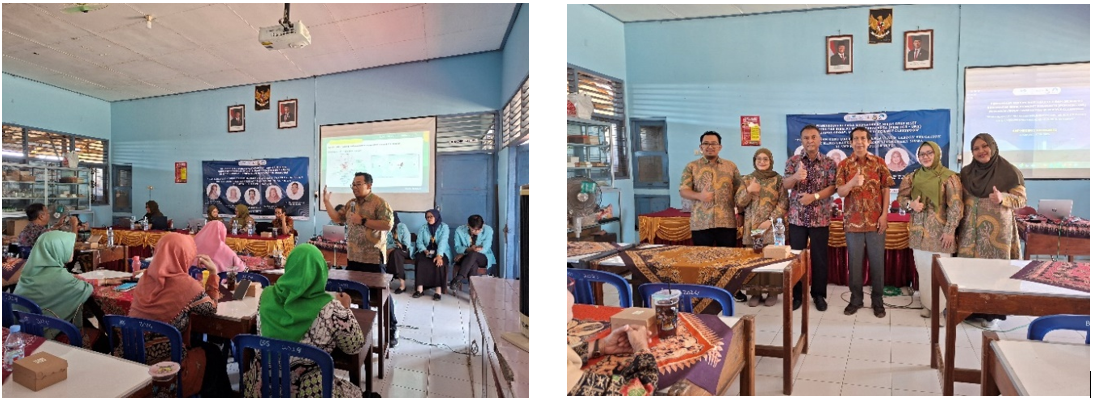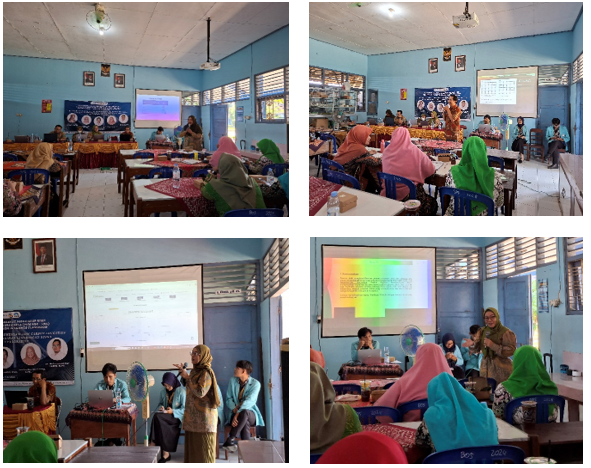
A team of lecturers from the Science Education Study Program, Faculty of Teacher Training and Education, Sebelas Maret University (UNS), who are members of the Innovation in Science Classroom (ISC) research group, carried out community service activities through the Community Development Scheme Research Group Minimum Performance Achievement Outcomes grant program (PKM-HGR UNS). The activity entitled “Teacher Empowerment in the Implementation of Low Carbon Education to Increase Students’ Environmental Awareness” took place at SMP Negeri 2 Polokarto on July 9, 2025. This activity was carried out as a form of academic contribution in supporting the improvement of the quality of science learning based on sustainable education.
SMP Negeri 2 Polokarto, located in Pundungrejo, Pundayi, Kenokorejo, Polokarto, Sukoharjo Regency, Central Java 57555, 17 km from the campus of Sebelas Maret University Surakarta. This community service activity aims to empower teachers in integrating Low Carbon Education (LCE) into the learning process, especially in science subjects. This is done to respond to various learning challenges in schools, such as conventional teaching methods, lack of contextual learning media, and low student awareness of energy-saving behavior. Teachers are facilitated to design and implement project-based learning that emphasizes environmental issues.

Through intensive training and mentoring, teachers at SMP Negeri 2 Polokarto gained a deep understanding of the LCE concept, contextual learning strategies, and the implementation of simple projects relevant to the principles of energy efficiency and environmental sustainability. Teachers were trained to become facilitators, encouraging students to actively explore environmental issues through meaningful scientific activities, in line with the spirit of the Independent Curriculum and the strengthening of the Pancasila student profile.
After participating in this community service activity, the teachers expressed enthusiasm and commitment to implementing the LCE approach in their daily learning. They also experienced increased pedagogical capacity in designing more interactive, contextual, and behaviourally-driven learning. The implementation team hopes this activity will be the first step in fostering an environmentally conscious learning culture and encouraging the creation of a younger generation aware of the importance of preserving the earth’s sustainability.


